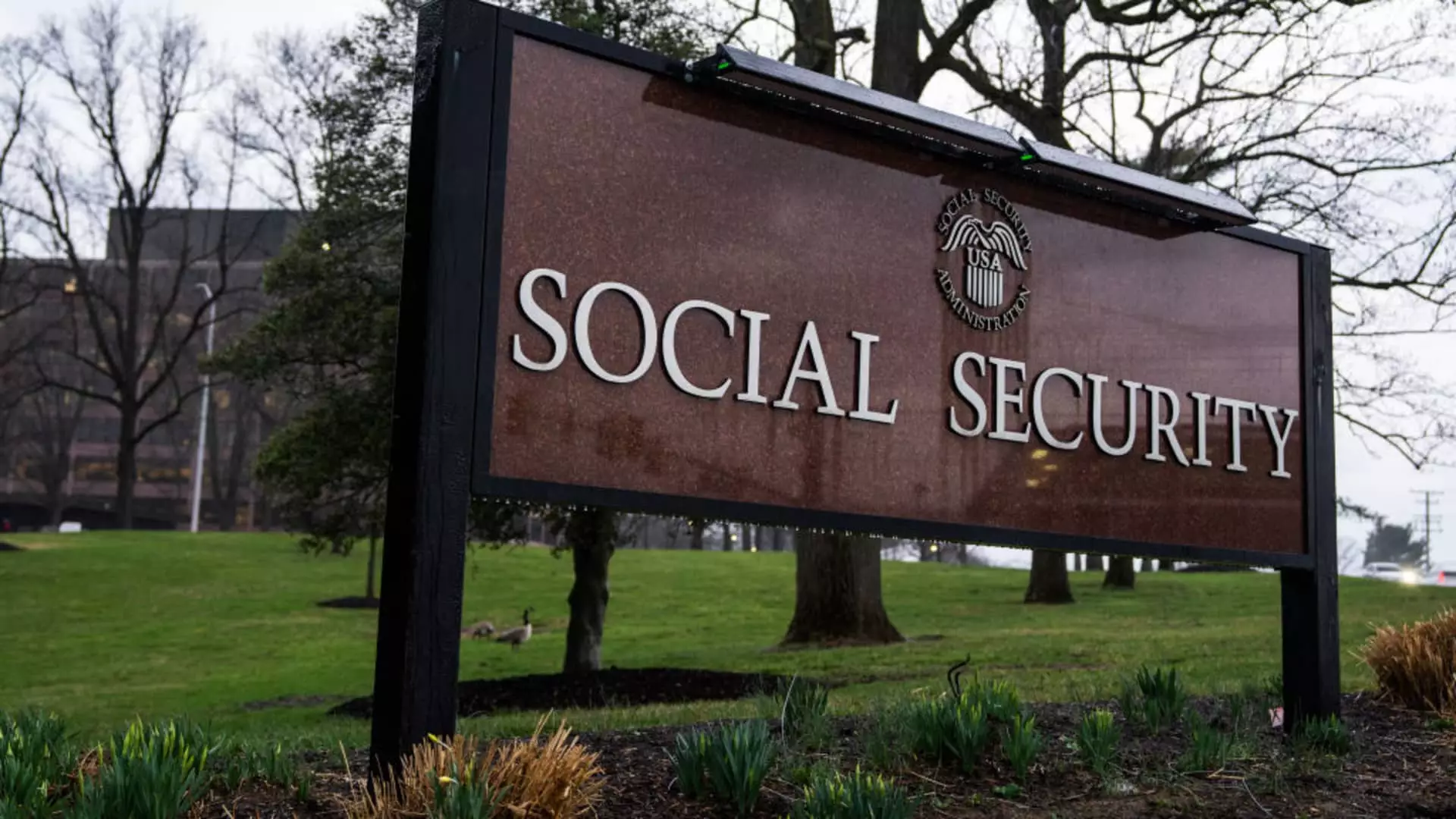The recent ruling by federal judge Ellen Lipton Hollander has cast a significant shadow over the Trump administration’s Department of Government Efficiency (DOGE). By temporarily blocking access to the Social Security Administration’s (SSA) personal data, this decision highlights a contentious intersection between political maneuvering and the critical services provided to millions of American citizens. The ramifications could be far-reaching, both for the beleaguered integrity of the SSA and for the vulnerable populations that depend on its support.
What DOGE Really Is: A Misguided Initiative
At the heart of this situation is DOGE, an initiative spearheaded by none other than Tesla CEO Elon Musk, who operates at the fringes of typical government structure yet wields immense influence. To classify DOGE as merely an executive endeavor is a gross understatement; it reflects a troubling trend where tech leaders, lacking proper governmental framework and oversight, encroach upon essential social programs. Instead of concentrating on substantive reforms within essential services, DOGE seems more like a tech experiment masquerading as governmental action. This raises fundamental questions about the qualifications of those steering such significant public operations.
The Fallout of the Ruling
Acting SSA Commissioner Lee Dudek’s statements following the court ruling have reverberated throughout various advocacy circles. Dudek indicated that the ruling could be so expansive that it jeopardizes essential functions within the SSA. His concerns highlight an unsettling reality: when political agendas take precedence over effective governance, it’s society’s most vulnerable who tend to pay the price. With millions relying on timely benefit distributions for retirement and disability support, any disruption is not merely procedural; it is tacitly a form of systemic neglect.
The implications of this ruling go beyond immediate disruptions. Hollander’s order compels DOGE to erase all non-anonymized information accessed since January 20. Such a draconian measure warrants skepticism. It speaks to an institutional overreach that can cultivate further distrust among the very citizens these agencies are meant to serve. The chilling effect of this ruling could lead to a further erosion of public confidence in government systems, thereby complicating efforts to deliver needed benefits efficiently.
Union Response: A Call to Arms
The reaction from various advocacy groups and unions has been one of alarm and dissent. Lee Saunders, president of the American Federation of State, County, and Municipal Employees (AFSCME), articulated a poignant sentiment when he called this situation a “five-alarm fire”. The historical significance of the Social Security program means that any disruption not only threatens the livelihoods of millions but also undermines nearly a century of trust. Nancy Altman of Social Security Works labels Dudek’s leadership as “the darkest in Social Security’s nearly 90-year history,” painting a dire picture of mismanagement and bureaucratic chaos.
This tension isn’t just rhetoric; it represents a groundswell of activism among those who recognize the challenges and complexities faced by these venerable institutions. The contrasting views from Democratic and Republican lawmakers further illuminate the divisive nature of this issue. Many Democrats view the changes as back-door benefit cuts, while Republicans dismiss these concerns as fearmongering. Such finger-pointing in Congress detracts from cooperative efforts needed to create sensible policies that improve rather than impair public welfare.
Leadership Crisis at the SSA: A Prelude to Chaos
Dudek’s unsteady footing is an embarrassing chapter for the SSA. His role, marked by inappropriate compromises and a lack of transparency, raises significant concerns about ability and leadership. After his tenure began just months ago, calling for a reevaluation of his administrative decisions is not merely warranted; it feels urgent. As benefits potentially hang in the balance, it begs a more profound inquiry: Who leads these essential services in times of crisis, and what are their competencies? The impending nomination of Frank Bisignano as the new commissioner of the SSA doesn’t promise an immediate solution but instead raises questions about whether a business-centered leadership model can successfully navigate the complexities of a deeply institutionalized welfare apparatus.
The Bigger Picture: Shaping Future Policy
As the political landscape shifts, the legislative arm must grapple with these pressing issues. A cooperative framework that prioritizes the needs of seniors and people with disabilities must take precedence over partisan battles. The consequences of sabotaging the SSA not only threaten individuals’ financial well-being but also give rise to a collective skepticism toward governmental efficacy. It is time for lawmakers to look beyond their silos and recognize that the integrity of social safety nets is a shared responsibility that safeguards the fabric of American society.
Amidst the turmoil surrounding the Trump administration’s initiatives, a unified public response advocating for accountability and effective governance becomes crucial. The stakes have never been higher; the well-being of millions depends on it.

